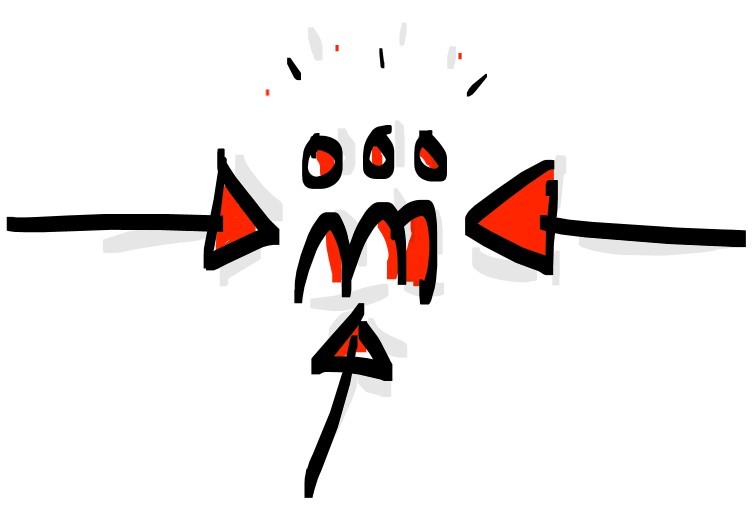A little reminder: Conflicts happen to be. And this is a good thing.

Often, we perceive quarrels as unpleasant
.
As something that should be avoided. Managers and employees alike tend to be afraid of evaluation interviews because of the criticism or salary negotiations that take place there. In consultation sessions, teachers and parents alike pile up walls of defense and justifications. And how on earth do I get my flatmates to clean their dishes?

Few people are happy about such situations.
Actually, though, that’s quite surprising. Because people are masters at finding solutions.
Rightly, we are proud of it: Without this outstanding solution skills, we could not live our lives.
Especially not successfully. Because problems are ubiquitous and inescapable – and so are conflicts.
If you don’t want to be broken by this immutable fact of life, it’s best to accept it as radically as possible.

Self-management professionals also adopt a worldview
according to which conflicts are good! Which they are – as long as you resolve them well.
Because then the question is really clarified, what should be. In general. And in the current situation. What is important and should be considered. And what to do next.

This process is commonly called: Decision making.
A genuine solution involves all conflict partners equally. In this way – and this way only – a personal and collective progress, a good, successful development is possible.
Because so a definitive, maximally good option is selected from the many available. So this is exactly why conflicts are good.
How come that we still consider them as bad?
Because the way we learn to deal with them is different from the one described above. Whether in kindergarten, school, college, public authorities, job, mostly also in families:
Where we learn and practice social behaviors, we learn to deal with conflicts in fundamental ways (“Those are the rules.”), qua status (“It’s my right to have the say!”) or by edict (“And that’s that!”).
We compulsively command and impose our will. With a short-term view.
This is how we learn throughout our lives
that status, authority, technocratic procedures, and egos are more important and more successful as a strategy than focusing on a collaborative solution or goal that is negotiated and decided jointly
We are learning that whoever has power is not only capable of creating facts in this way. But that this is also completely normal.
Even if that has little to do with resolving a disagreement issue. Rather, it is naked violence.
While violence or coercion
in contentious situations IS sometimes necessary to show limits and protect yourself. But just as ultima ratio.
And not as the first means of choice in ANY cases, to which it seems to have become in our culture, which pays homage to short-term maximization and rewards corresponding “achievements”.

Perhaps that’s why it is especially important today
to seek a different social and organizational approach: A collaborative and noncoercive one. Because that’s how we gain real success.
And fun. (What life should be all about.)